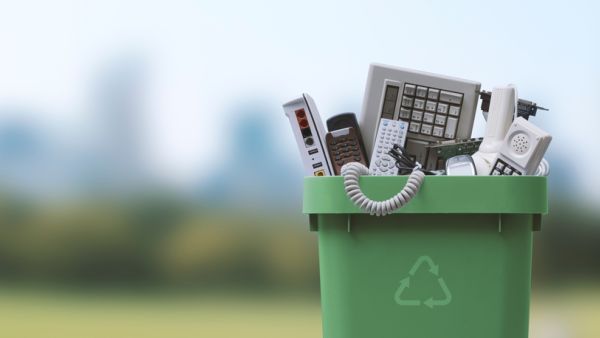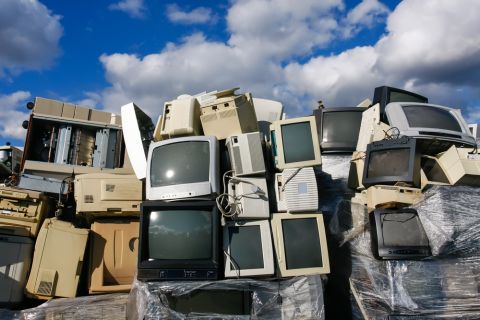ALBAWABA - Researchers have developed a technology to extract high-purity gold from electronic waste, a step that could revolutionize gold recovery processes. The technology utilizes an unexpected element obtained from the food industry, promising sustainable extraction methods.
Gold is highly esteemed for its intrinsic value and diverse applications across various industries, including electronics, aerospace, medicine, and nanotechnology. The limited nature of gold resources, coupled with increasing demand, underscores the urgent need for sustainable extraction methods.
According to "newatlas," the technology revolves around the use of whey protein, a byproduct of cheese production, as a crucial element in the gold extraction process. By converting whey protein into a matrix of "amyloid fibers," a "sponge-like" material capable of selectively extracting gold from electronic waste is produced.

Under controlled conditions involving acidity and high temperatures, whey protein undergoes denaturation, forming nano fibers within a gel matrix. The resulting "gel" is then processed and transformed into a sponge-like material ready to capture metal ions from soluble electronic waste components. Researchers successfully recovered gold from old computer motherboards after a series of experiments, demonstrating the effectiveness of their method. The extracted gold exhibited significantly higher purity levels, mostly comprising gold with minimal impurities such as copper and nickel, unlike traditional techniques that often yield impure results.
The innovative process proves to be economically viable, with the total cost of gold recovery from electronic waste estimated to be 50 times less than the value of the obtained gold. Additionally, it significantly reduces the environmental footprint compared to conventional methods, thanks to reduced energy consumption and greenhouse gas emissions.
While the current method relies on whey protein, researchers are exploring alternative protein sources, including plant-based options, to mitigate environmental impacts. By diversifying protein materials, they aim to develop a sustainable and scalable solution for gold extraction from various waste streams beyond electronic waste. Researchers are gearing up to commercialize the technology, envisioning its application in diverse sectors beyond electronic waste recycling, offering profitable opportunities for gold recovery using the innovative method.
The website emphasizes, "Extracting gold from electronic waste not only proves profitable but also underscores the potential of sustainable practices to mitigate environmental impacts associated with resource extraction. With further advancements and improvements, the discovered method holds promise for reshaping the future of gold recovery while enhancing principles of economic and environmental stewardship."








